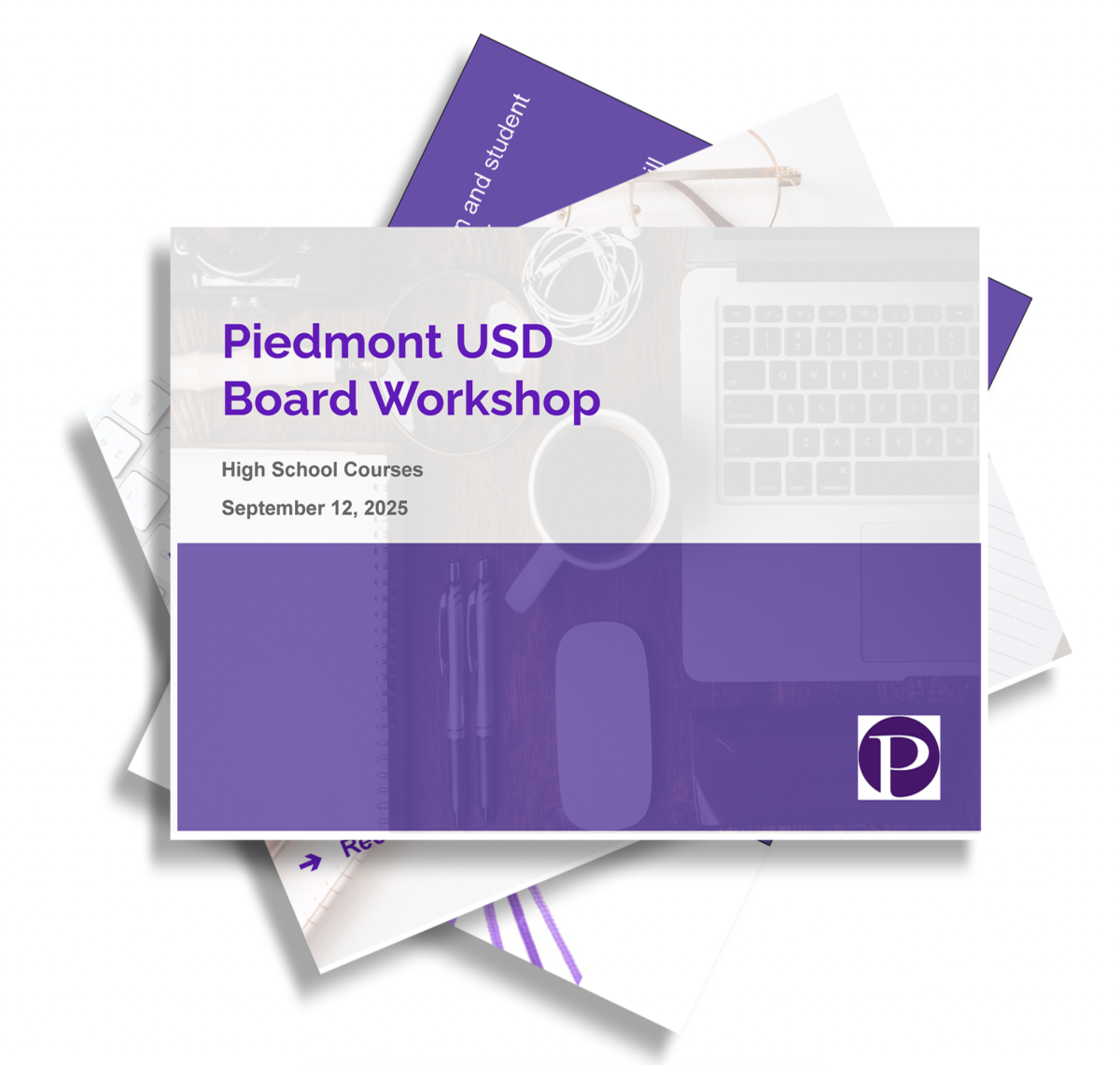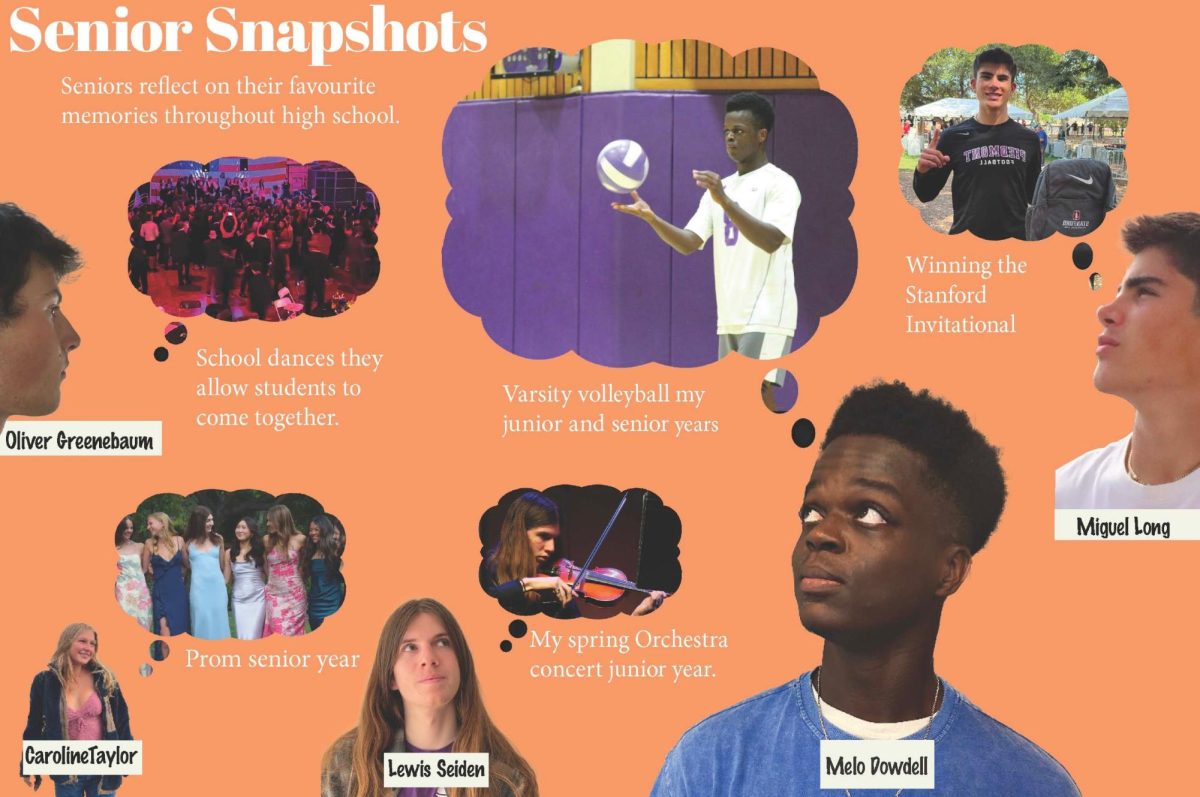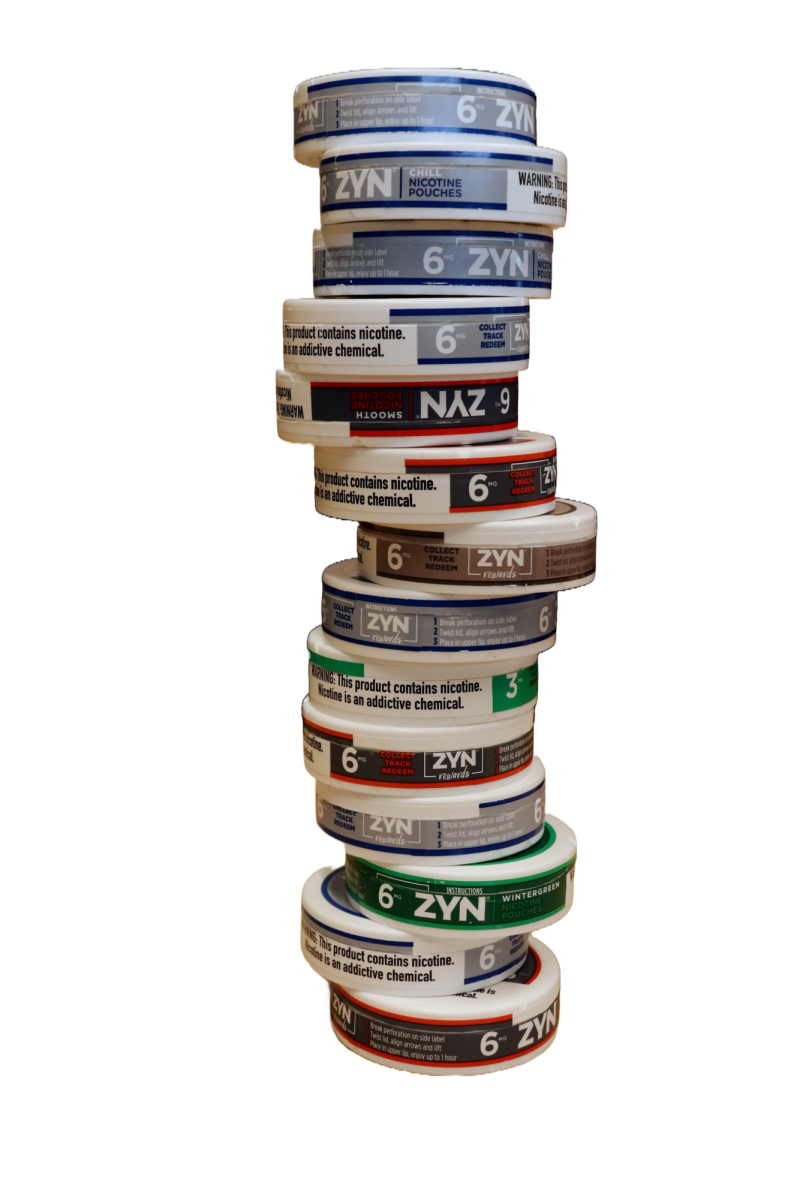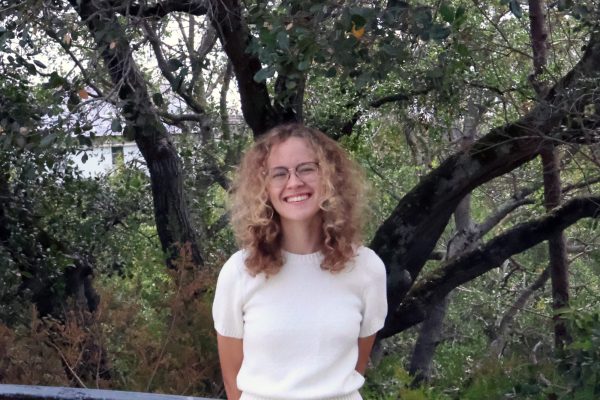Scrambling to review notes during lunch or passing periods, sacrificing sleep to drill themselves on tongue-twisting vocabulary terms, overloading their brains with every Heimler’s History or Khan Academy video available—these are snapshots into the lives of Piedmont’s countless Honors and AP students, all in preparation for a three-hour exam in May. Although they provide the opportunity for students to go beyond what would be covered in a typical unweighted class, the hypercompetitive academic culture that exists in Piedmont can also lead to mindsets of constant comparison.
“I’m only taking five classes this year, and I have two free periods, and I feel sort of behind, like I’m not doing the right things. There’s a lot of unspoken pressure around how many APs you’re taking and stuff like that,” senior Mara Kemp-Malone said.
Even among underclassmen, the emphasis on rigorous classes as a metric by which students compare themselves is evident.
“I think you’re encouraged to take as many APs as you possibly can in hopes of getting into college and getting college credit, and I think that there’s kind of a mindset where your worth is determined [based] on how many APs you take,” sophomore Annalise Gudiksen said.
Beyond the pressure cultivated among the student body, Piedmont’s intense focus on academics in the community is often partially attributed to the competitive attitudes of some parents.
“I feel like there is a big pressure in our community to, you know, be ‘keeping up with the Joneses,” PHS counselor Michelle Hoang said. “Because parents are always talking and always kind of in competition with one another, [there is] pressure to do well to maintain that upper-middle-class lifestyle, to pursue high status jobs… to maintain that generational status.”
Julie Stein, the mother of a current college senior and high school sophomore, said that she has witnessed Honors and AP classes become more heavily emphasized over the years. To ensure her own children’s workloads didn’t become unmanageable, she implemented a family rule of a maximum of two weighted courses per year when her oldest child was still in high school.
“I worry about that balance, and I worry about the race to nowhere, and that kids should have a high school experience… there’s not a need for such a race,” Stein said.
While weighted courses allow for students to further develop their passions in a subject area, there is also concern for the hyperfixation on the grade point average boosts that these classes offer. According to PHS’ most recent School Profile, 31.2% of the 2024-2025 graduating class had an unweighted GPA between 3.9 and 4.0 and averaged a GPA of 3.6, a number far surpassing the 2019 nationwide average of 3.0 reported by the National Center for Education Statistics.
“It’s awesome that we have such a vast catalog available [so] that you’re really able to find your niche and be able to take classes that kind of match that,” senior Collin Cameron said. “I find, though, that there is a certain pressure that comes into play with wanting to raise your GPA, and especially being compared to other students at the school and how many they’re taking.”
As of the 2025-2026 school year, Piedmont High School offers 13 Honors and 20 Advanced Placement courses, eight of which are available for the first time this year. Over the past three years, however, only two new unweighted classes have been introduced to the catalog, those being Affinity Mentorship, which is an eighth period course, in the 2023-2024 school year and A Cappella the following year. According to the School Profile, the number of students taking at least one AP exam increased from 373 in 2023 to 415 in 2024.
“I think [the addition of new weighted classes] is good for certain people who are really interested in that stuff and want to challenge themselves, but I also think it adds more pressure, because it’s more APs that you could take to add to your schedule and get a higher GPA,” Kemp-Malone said. “So even though you’re not interested in [a] class, you might take it just because it’s there.”
Hoang said that although administrators don’t want to restrict students’ academic opportunities, the continual addition of almost entirely weighted courses threatens the options available to students who may not be interested in such challenging classes.
“I will never say no to more rigorous offerings, but I will always say no if that’s without a proportional increase in non-weighted class offerings as well. At this school, there is such a pressure to take as many AP / Honors classes as possible,” Hoang said.
Still, the addition of these classes isn’t seen as entirely detrimental—in fact, many students have expressed enthusiasm for the addition of optional Honors credits for higher-level arts courses such as Acting and Jazz Band.
“I think that’s really amazing because students who want to do more in [VAPA classes] sometimes feel pressured to not do them anymore, because they’re unweighted, but I think having those options really help students who love those areas of performing and visual arts,” Gudiksen said.
Cameron, who is taking Honors Acting as an elective, said that he appreciates the incentive that the new weighted options in the VAPA department provide but worries that doing so might diminish the value of the classes in and of themselves.
“It’s interesting, because we want to encourage people to pursue the arts and take art electives who otherwise would feel pressured to not take them because they need to fit other courses in their schedule,” Cameron said. “But at the same time, I feel like if we make every course weighted, then it loses its meaning.”
Among some administrators, there is concern for the intense fear of perceived ‘failure’ or accompanying feelings of inadequacy present in the student body that such a culture has cultivated.
“If there are students coming into my room in tears because they got a C on a test and their grade went from an A- to a B-, that’s an issue,” Hoang said. “I worry about how fragile our students are sometimes. When it comes to failures and setbacks, we don’t allow our kids to fail, and that’s going to bite them in the butt when they go to college and there’s no one there looking out for them.”































